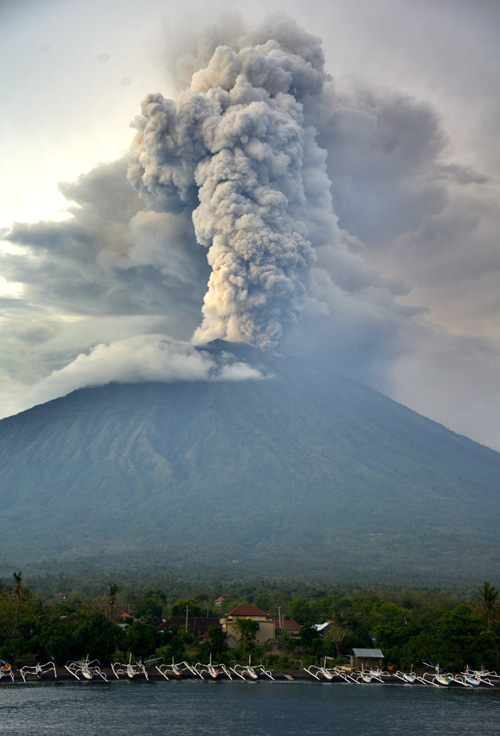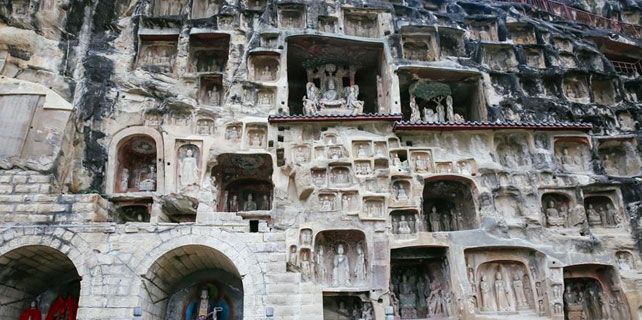Tourists feel the heat over Bali volcano
 |
|
A general view shows Mount Agung erupting, as seen from Kubu subdistrict in Karangasem Regency on Bali on Tuesday. SONNY TUMBELAKA / AGENCE FRANCEPRESSE |
KARANGASEM, Indonesia - A volcano gushing towering columns of ash closed the airport on the Indonesian tourist island of Bali for a second day on Tuesday, disrupting travel for tens of thousands, as authorities renewed their warnings for villagers to evacuate.
Mount Agung has been hurling clouds of white and dark gray ash about 4,000 meters high and lava is welling in its crater.
The local airport authority said its closure for another 24 hours was required for safety reasons. Volcanic ash poses a deadly threat to aircraft, and ash from Agung is moving south-southwest toward the airport. Ash has reached a height of about 9,000 meters as it drifts across the island.
"I don't know, we can't change it," said stranded German tourist Gina Camp, sitting on a bench at the airport. "It's nature and we have to wait until it's over."
She decided to look on the bright side, saying she planned to go back outside to enjoy another day on the island.
A Chinese tour service, Shenzhen PT Lebali International, had about 20 groups totaling 500 to 600 travelers from the cities of Wuhan, Changsha and Guangzhou in Bali, according to executive Liao Yuling, who was on the island.
"They are mostly retirees or relatively high-end, so they don't say they are especially anxious to rush home," she said by telephone.
If the airport stays closed, Liao said they would head by ferry and bus to Surabaya on Java where the company's charter flights could pick them up.
"We are not really affected, because the volcano is too far away," said Liao. "We only can say we saw pictures of it on television."
Bali is Indonesia's top tourist destination, with its Hindu culture, surf beaches and lush green interior attracting about 5 million visitors a year.
Indonesia's National Disaster Mitigation Agency raised the volcano's alert to the highest level on Monday and expanded an exclusion zone to 10 kilometers from the crater. It said a larger eruption is possible, though a government volcanologist has also said Agung could stay at its current level of activity for weeks and not erupt explosively.
Thermal anomaly
NASA detected a thermal anomaly over the weekend, said Gede Swantika, a senior volcanologist in Bali.
"It means that there's a direct conduit from the magma storage chambers in the crust up to the surface," said Richard Arculus, a volcano expert at Australian National University.
"What stops most eruptions from happening is that you don't have a conduit from where the magma's reached, to the surface. Once you've got that opened,... it means there's easier access for the magma upward out into the open."
Agung's last major eruption in 1963 killed about 1,100 people.
Authorities have told 100,000 people to leave homes nearest the volcano, though tens of thousands stayed because they felt safe or didn't want to abandon livestock. Mudflows have been seen on the mountain's slopes, and authorities warned more are possible, since it's the rainy season in Bali.
Volcanologist Erik Klemetti at Dennison University in Ohio said Agung's 1963 eruption was big enough to cool the Earth slightly but it's unclear whether this time it will have a similar major eruption or simmer for a prolonged period.
"A lot of what will happen depends on the magma underneath and what it is doing now," he said.
Indonesia sits on the Pacific "Ring of Fire" and has more than 120 active volcanoes.
Ap - Reuters - Xinhua










